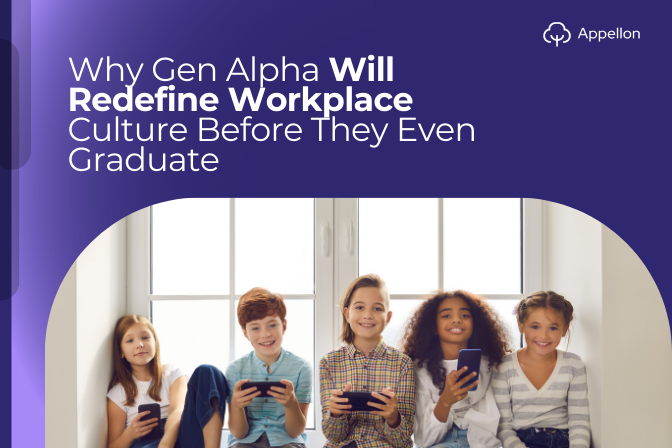We’ve talked endlessly about Millennials and debated the quirks of Gen Z. But the next generation — Gen Alpha (born from 2010 onwards) — is already shaping the future of workplace culture before they’ve even entered the job market.
That’s right: the oldest Gen Alphas are still in high school, but their attitudes, behaviours, and expectations will redefine how organizations think about work.
Who Is Gen Alpha?
Gen Alpha are the first generation raised entirely in the era of:
- AI, automation, and constant connectivity
- Climate anxiety and global instability
- Personalised learning and on-demand everything
They’re digital natives, but also context natives — aware of global issues, highly adaptive, and deeply shaped by uncertainty.
The Attitude Shift: What Makes Gen Alpha Different
Unlike Gen Z, who often resist traditional work models, Gen Alpha is expected to enter the workplace with an expectation of fluidity.
- Work-life integration: They won’t separate “work” and “life” — they’ll expect work to fit seamlessly into life.
- Instant feedback: Conditioned by personalised education, they’ll expect constant reinforcement and micro-feedback.
- Purpose as default: For Gen Alpha, organizational purpose isn’t a perk — it’s table stakes.
From an organizational psychology perspective, this means leaders will need to focus less on engagement “programs” and more on continuous reinforcement of achievement and connection.
Why Leaders Must Prepare Now
The future of work culture won’t be defined by policies or perks. It will be defined by whether organizations can create:
- Achievement pathways that fuel resilience
- Connection-driven environments that foster trust
- Psych-tech platforms that provide reinforcement in real time
At Appellon, we already see this shift. Our 10-minute micro-learnings and real-time reinforcement systems aren’t just about fixing today’s culture — they’re about future-proofing organizations for the demands of tomorrow’s workforce.
Final Thought
Gen Alpha may not have graduated yet, but their expectations are already shaping schools, consumer behaviour, and family dynamics. And when they do step into the workplace, they won’t adapt to outdated cultures — they’ll force organizations to adapt to them.
The organizations that thrive will be those that redefine culture now, shifting from stress-driven structures to attitude-driven achievement and connection.
